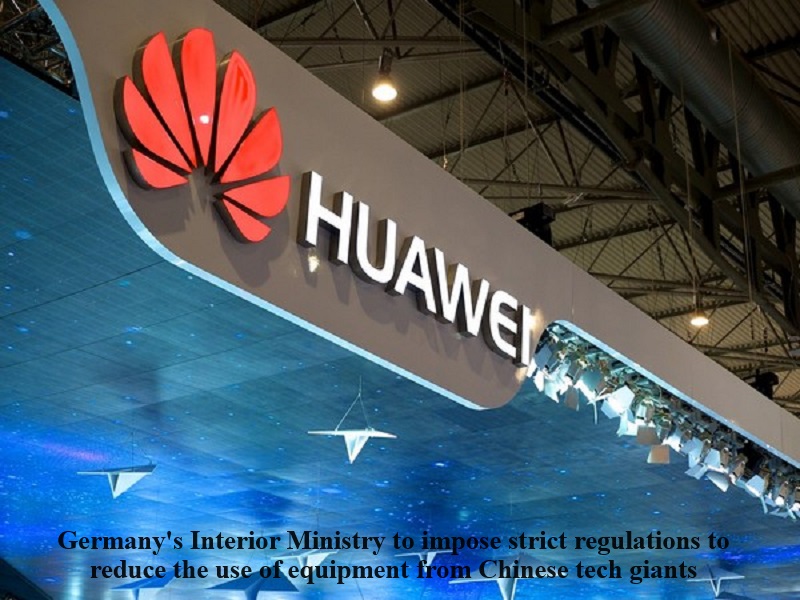
Germany’s Interior Ministry is contemplating stringent regulations aimed at reducing the usage of equipment provided by Chinese tech giants Huawei and ZTE in the country’s telecom infrastructure, a move that has garnered significant attention and opposition from telecom operators. This decision is motivated by concerns regarding Germany’s heavy reliance on these Chinese suppliers, especially in critical areas like 5G networks.
As Germany seeks to redefine its relationship with China, viewing it as both a partner and a systemic rival, the implications of this decision extend to the nation’s telecommunications landscape.
To address potential disruptions, the Interior Ministry has outlined a phased approach. By 2026, telecom operators will be mandated to remove all critical components sourced from Chinese vendors in their 5G core networks. Additionally, they must limit the proportion of Chinese components in their Radio Access Network (RAN) and transport networks to a maximum of 25 percent by October 1, 2026.
However, telecom operators have expressed their opposition to these proposed changes. Huawei Germany, in particular, has criticized what it perceives as the “politicization” of cybersecurity in the country. The company stated that such an approach would negatively impact digital transformation in Germany, stifle innovation, and substantially increase construction and operating costs for network operators, which would ultimately be passed on to consumers.
Deutsche Telekom has criticized the 2026 deadline as unrealistic, drawing parallels with the protracted efforts in the United Kingdom to impose restrictions on Huawei. The company has also raised concerns about potential declines in service quality for its customers. Meanwhile, Telefonica Deutschland has indicated its intention to explore legal action against the German government and seek damages.
Currently, Huawei holds a dominant 59 percent share of Germany’s 5G RAN networks, as revealed by a survey conducted by telecommunications consultancy Strand Consult. It’s worth noting that certain sensitive regions, such as Berlin, where the federal government is based, advise against using Chinese technology entirely—a distinction deemed “arbitrary” by Strand Consult.
The Interior Ministry intends to present its strategy to the cabinet in the coming week. However, it may face opposition from the Ministry for Digital Affairs, which is concerned that these measures could further impede Germany’s slow progress in digitalization. The Ministry for Digital Affairs emphasizes the importance of maintaining stable, fast, and affordable access to mobile internet.
Germany has faced criticism for lagging behind in implementing the European Union’s security measures for 5G networks. These measures were established three years ago to restrict the use of “high-risk” vendors like Huawei and ZTE due to concerns about potential sabotage or surveillance, allegations vehemently denied by both Chinese companies. The government recently disclosed that it had not prohibited the use of any new Chinese critical components in 5G networks, a revelation that drew criticism from opposition conservatives.
As Germany adopts a tougher stance on China and aims to reduce its reliance on individual countries, particularly amid the energy crisis exacerbated by dependence on Russian gas, the use of Huawei has come under increased public scrutiny. The Interior Ministry views this decision as an “urgent need” to prevent a repeat of the Nord Stream situation—a pipeline project designed to deliver Russian gas to Germany but subsequently abandoned.

Post Your Comments